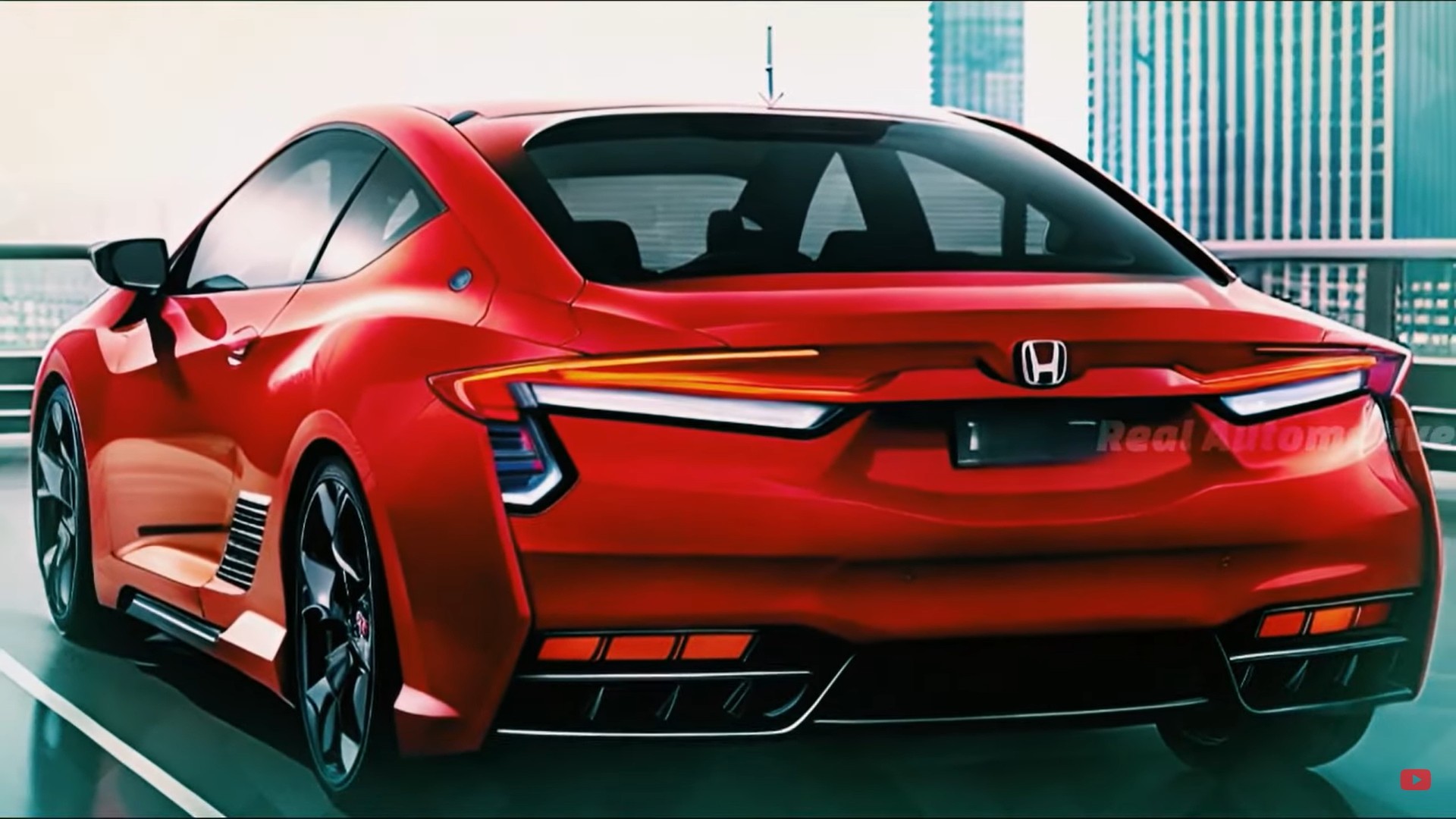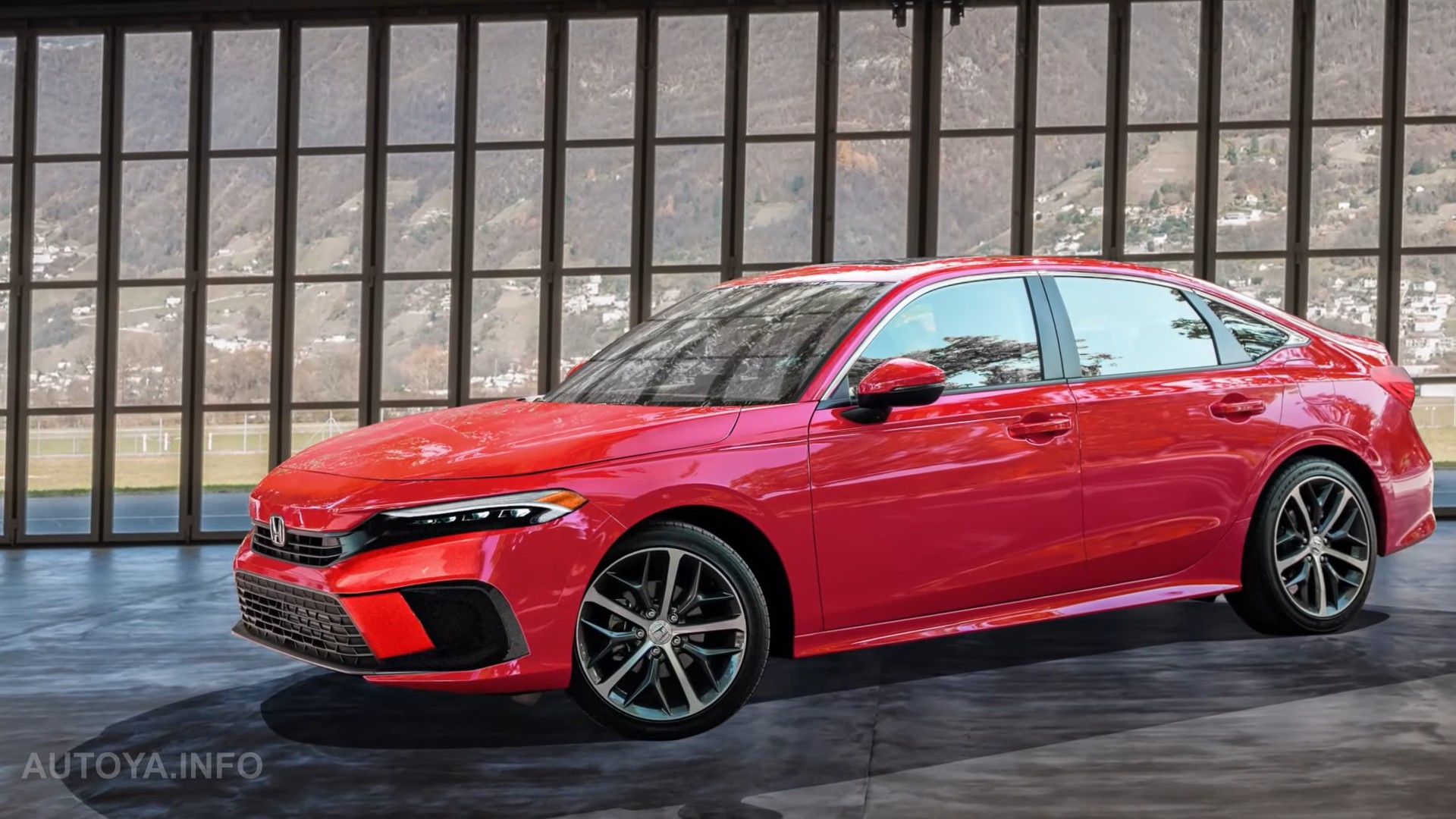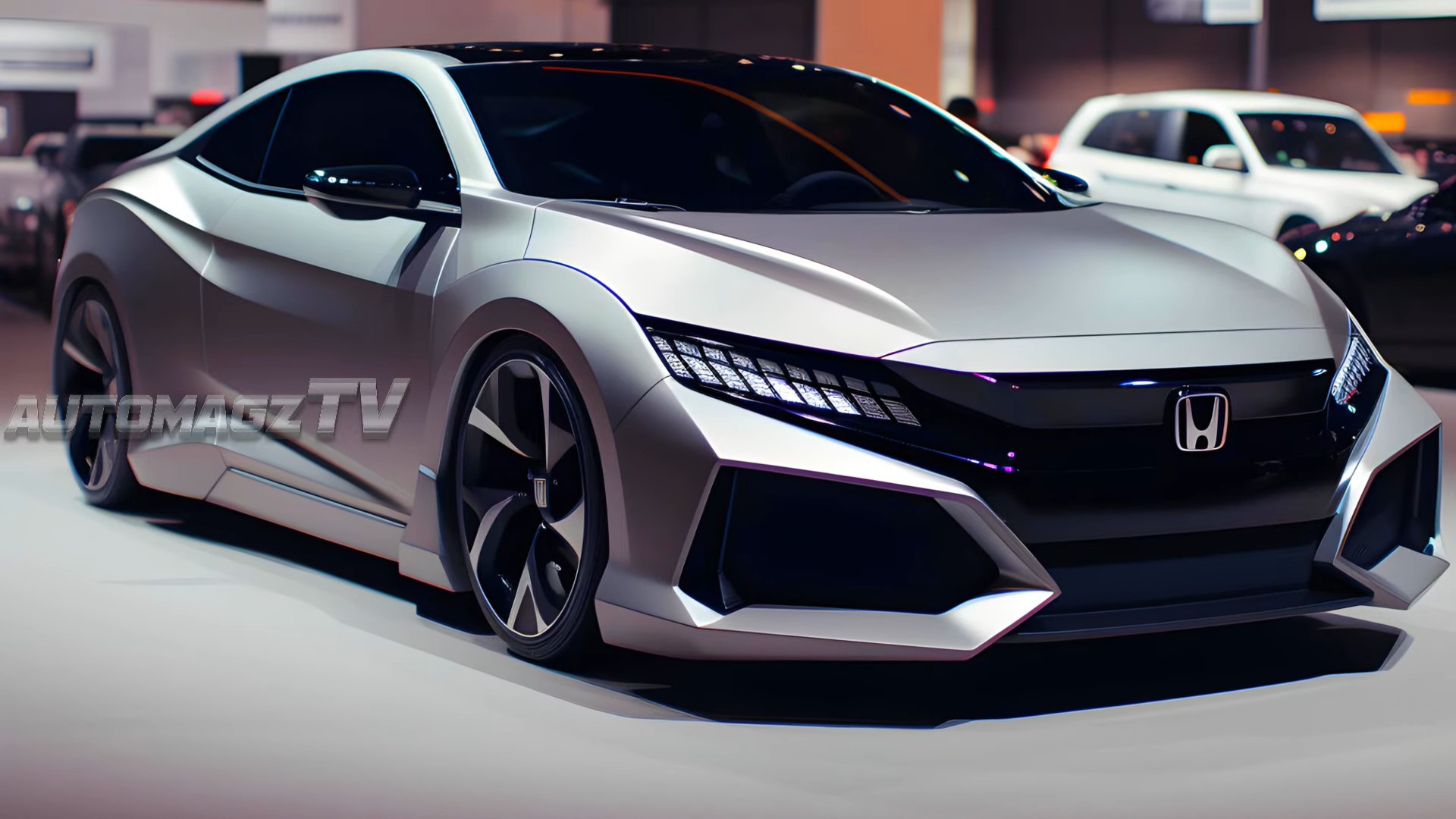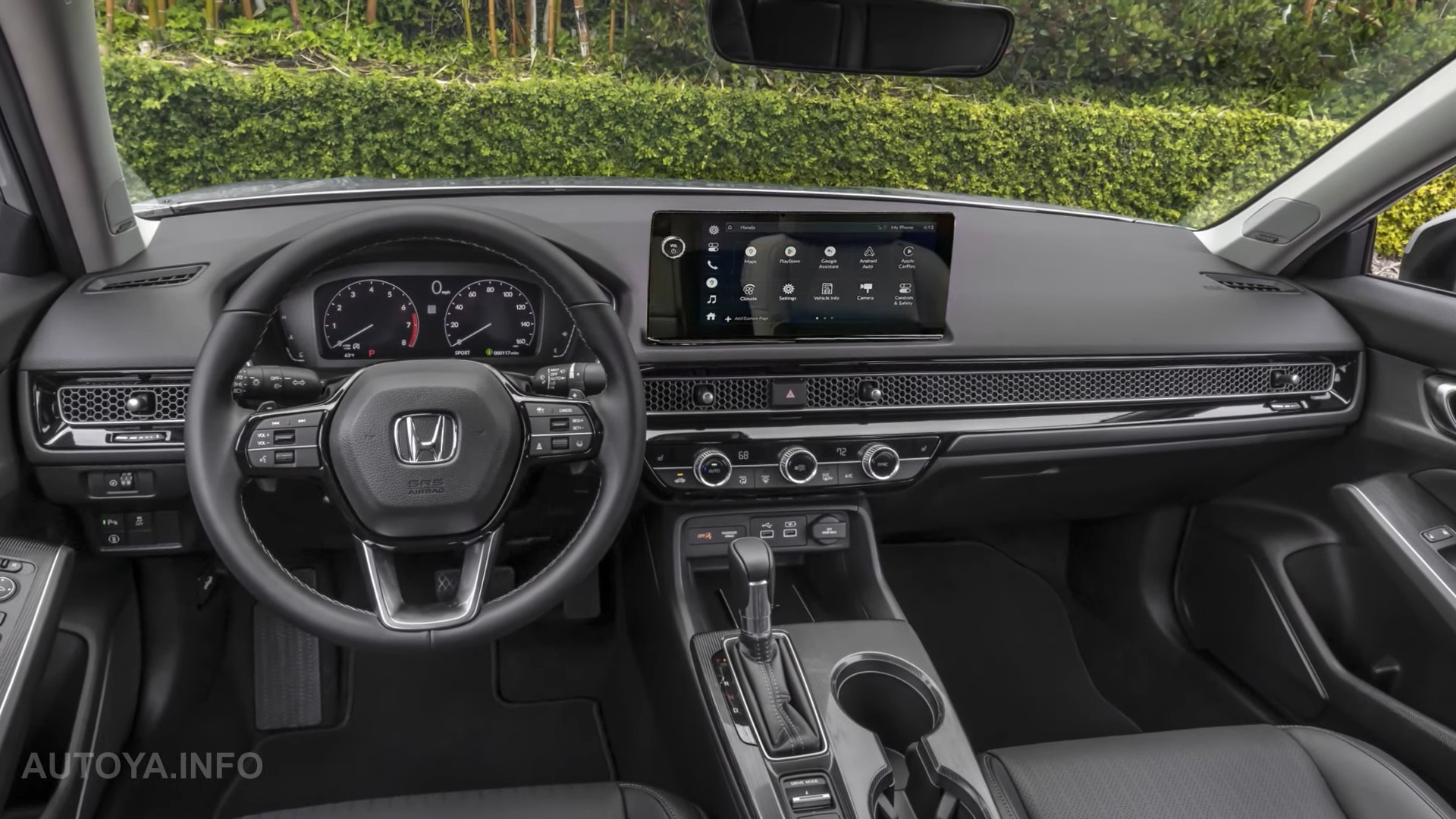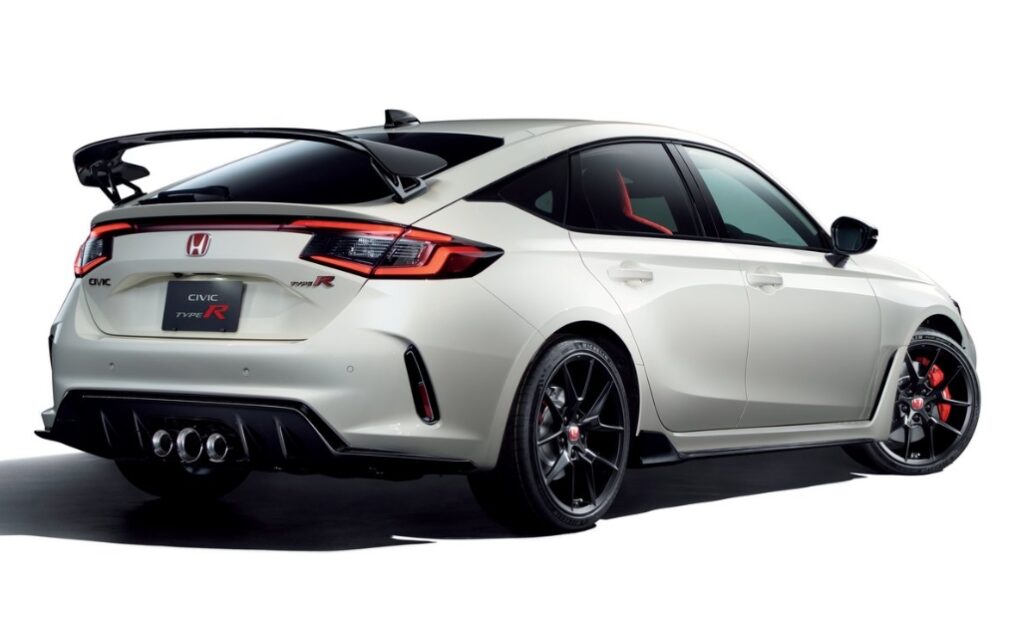The 2025 Honda Civic: A Fuel-Sipping Champion In The Making?
By admin / July 17, 2024 / No Comments / 2025

The 2025 Honda Civic: A Fuel-Sipping Champion in the Making?
The Honda Civic has long been a favorite among drivers seeking a balance of practicality, affordability, and fuel efficiency. As we approach 2025, the iconic compact car is poised to further refine its fuel-sipping prowess, thanks to a combination of technological advancements and a renewed focus on sustainability. While official EPA figures for the 2025 model year are yet to be released, we can delve into the factors that will likely contribute to its fuel economy and anticipate what drivers can expect.
The Engine Under the Hood: A Symphony of Efficiency
The 2025 Honda Civic is expected to continue offering a range of engine options, each tuned for optimal efficiency. While specific details are still under wraps, we can anticipate the following:
- Naturally Aspirated 2.0L 4-Cylinder: This tried-and-true engine, likely to be offered in the base LX trim, will provide a balance of power and fuel economy. Expect it to offer a slight improvement over the current generation’s efficiency thanks to refinements in combustion technology and reduced friction.
- Turbocharged 1.5L 4-Cylinder: This engine, offered in higher trims like the Sport and EX, is expected to deliver a healthy dose of power while remaining fuel-efficient. Advancements in turbocharger technology and engine management systems will likely contribute to improved fuel economy compared to the current generation.
- Hybrid Powertrain: Honda is committed to electrifying its lineup, and the 2025 Civic is likely to feature a hybrid option. This powertrain will combine a gasoline engine with an electric motor, providing a significant boost in fuel efficiency. While the exact hybrid system remains unknown, it’s likely to be similar to the one found in the current generation Civic Hybrid, offering a substantial fuel economy advantage.
Beyond the Engine: Optimizing for Efficiency
Fuel economy isn’t solely determined by the engine. Honda is likely to implement a variety of technologies and design features to further enhance the 2025 Civic’s efficiency:
- Lightweight Construction: The 2025 Civic is expected to utilize lightweight materials, such as high-strength steel and aluminum, to reduce overall weight. This, in turn, will improve fuel economy by reducing the amount of energy required to move the vehicle.
- Aerodynamic Refinement: Honda is known for its aerodynamic expertise, and the 2025 Civic is likely to feature an optimized body shape and design elements to minimize wind resistance. This will improve fuel efficiency by reducing drag and allowing the vehicle to cut through the air more easily.
- Advanced Transmission: The 2025 Civic is likely to be equipped with a continuously variable transmission (CVT) or a highly efficient dual-clutch transmission (DCT). These transmissions optimize gear ratios for optimal fuel economy, allowing the engine to operate at lower RPMs for greater efficiency.
- Smart Driving Systems: The 2025 Civic might feature advanced driver-assistance systems (ADAS) that can help optimize fuel economy. These systems can analyze traffic conditions and adjust driving patterns, such as coasting and regenerative braking, to maximize fuel efficiency.
Anticipated Fuel Economy Figures: A Glimpse into the Future
While official EPA figures are not yet available, we can make educated guesses based on current trends and the expected technological advancements:
- Base 2.0L Engine: Expect a slight improvement over the current generation’s fuel economy, potentially reaching around 32 mpg city, 42 mpg highway, and 36 mpg combined.
- Turbocharged 1.5L Engine: This engine is likely to achieve even better fuel economy, potentially reaching 34 mpg city, 44 mpg highway, and 38 mpg combined.
- Hybrid Powertrain: The hybrid Civic is expected to be the most fuel-efficient option, potentially reaching 50 mpg city, 55 mpg highway, and 52 mpg combined.
Factors Influencing Fuel Economy: Understanding the Variables
It’s crucial to remember that real-world fuel economy can vary depending on various factors:
- Driving Habits: Aggressive acceleration, frequent braking, and excessive idling can significantly impact fuel economy.
- Traffic Conditions: Heavy traffic and frequent stop-and-go driving can reduce fuel efficiency.
- Environmental Conditions: Factors like temperature, altitude, and wind can affect fuel economy.
- Tire Pressure: Underinflated tires can increase rolling resistance, reducing fuel efficiency.
- Vehicle Load: Carrying extra weight, such as passengers or cargo, can increase fuel consumption.
The 2025 Honda Civic: A Sustainable Choice for the Future
The 2025 Honda Civic is poised to be a fuel-efficient champion, offering drivers a practical and economical choice for their daily commutes. By incorporating advanced engine technology, lightweight construction, aerodynamic enhancements, and smart driving systems, Honda is pushing the boundaries of fuel efficiency in the compact car segment.
While the official EPA figures are still pending, the 2025 Civic is likely to offer impressive fuel economy across its lineup, making it a compelling option for environmentally conscious drivers. As the automotive industry continues its journey towards sustainability, the 2025 Honda Civic stands as a testament to Honda’s commitment to delivering efficient and eco-friendly vehicles that meet the needs of modern drivers.
Beyond the Numbers: The Broader Impact of Fuel Efficiency
The 2025 Honda Civic’s focus on fuel efficiency goes beyond simply saving drivers money at the pump. It represents a broader commitment to sustainability and environmental responsibility. By reducing fuel consumption, the Civic contributes to:
- Reduced Greenhouse Gas Emissions: Burning less fuel means emitting fewer greenhouse gases, helping to mitigate climate change.
- Improved Air Quality: Lower emissions contribute to cleaner air, benefiting public health and the environment.
- Energy Independence: Reducing our reliance on fossil fuels increases energy independence and reduces our vulnerability to global oil market fluctuations.
Looking Ahead: The Future of Fuel Efficiency in the Civic
The 2025 Honda Civic is a stepping stone in Honda’s journey towards a more sustainable future. As technology continues to evolve, we can expect even greater fuel efficiency advancements in future Civic models. This could include:
- Plug-in Hybrids (PHEVs): These vehicles combine the benefits of hybrid technology with the ability to be plugged in for extended electric-only driving range.
- Fully Electric Vehicles (EVs): As battery technology advances and charging infrastructure expands, fully electric Civics could become a reality, offering zero-emission driving.
- Hydrogen Fuel Cell Vehicles: While still in their early stages of development, hydrogen fuel cell vehicles could offer a clean and efficient alternative to gasoline-powered cars.
Conclusion: A Legacy of Fuel Efficiency Continues
The Honda Civic has a long history of setting the standard for fuel efficiency in the compact car segment. The 2025 model year is poised to continue this legacy, offering drivers a compelling combination of performance, practicality, and environmental responsibility. As we move towards a more sustainable future, the 2025 Honda Civic serves as a testament to the ongoing advancements in fuel efficiency technology and Honda’s commitment to creating vehicles that benefit both drivers and the planet.
